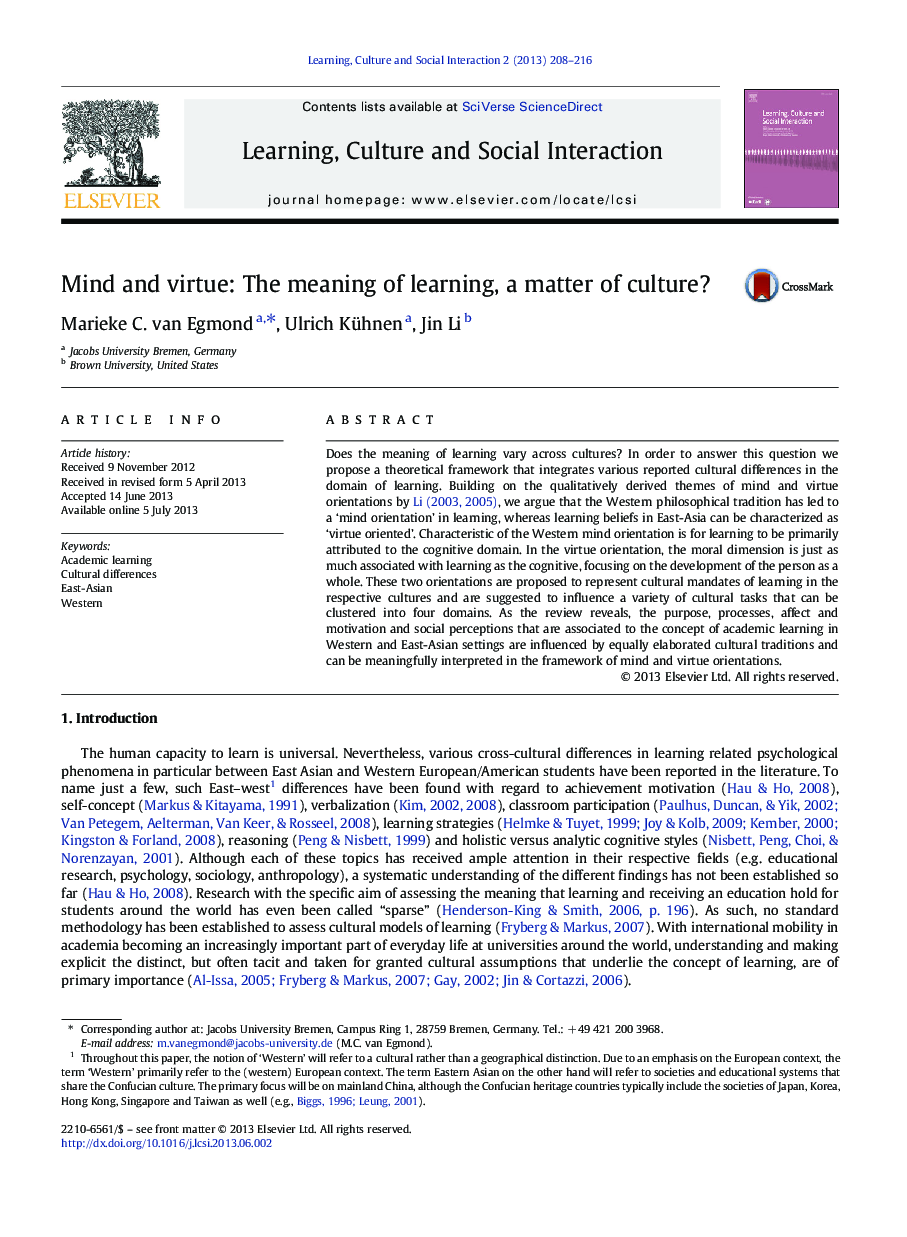| Article ID | Journal | Published Year | Pages | File Type |
|---|---|---|---|---|
| 364415 | Learning, Culture and Social Interaction | 2013 | 9 Pages |
•A cross-cultural theoretical analysis of the meaning of learning is presented.•A ‘mind orientation’ represents the orientation towards learning in the West.•East Asian beliefs about learning can be characterized as ‘virtue oriented’.•The orientations influence learning purposes, processes, motivation and perceptions.
Does the meaning of learning vary across cultures? In order to answer this question we propose a theoretical framework that integrates various reported cultural differences in the domain of learning. Building on the qualitatively derived themes of mind and virtue orientations by Li, 2003 and Li, 2005, we argue that the Western philosophical tradition has led to a ‘mind orientation’ in learning, whereas learning beliefs in East-Asia can be characterized as ‘virtue oriented’. Characteristic of the Western mind orientation is for learning to be primarily attributed to the cognitive domain. In the virtue orientation, the moral dimension is just as much associated with learning as the cognitive, focusing on the development of the person as a whole. These two orientations are proposed to represent cultural mandates of learning in the respective cultures and are suggested to influence a variety of cultural tasks that can be clustered into four domains. As the review reveals, the purpose, processes, affect and motivation and social perceptions that are associated to the concept of academic learning in Western and East-Asian settings are influenced by equally elaborated cultural traditions and can be meaningfully interpreted in the framework of mind and virtue orientations.
